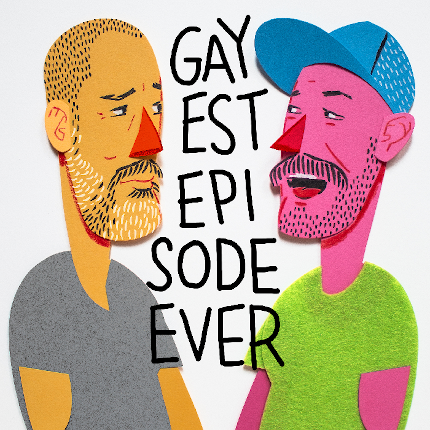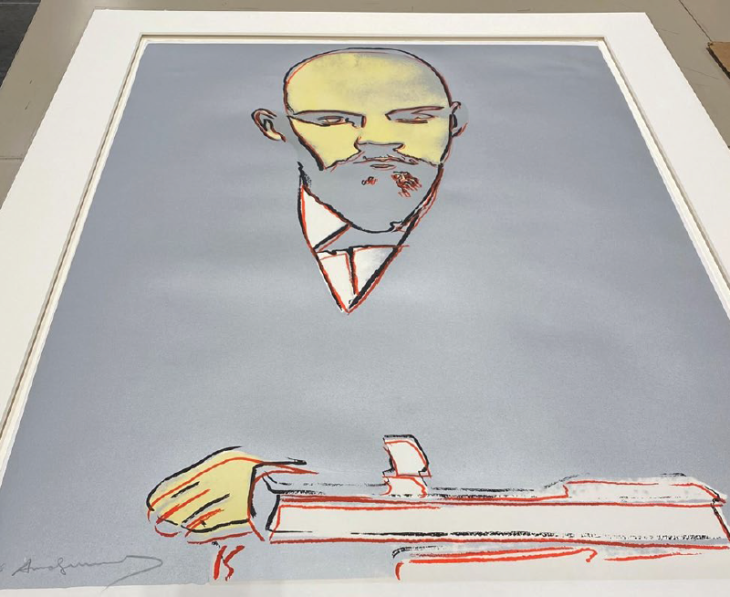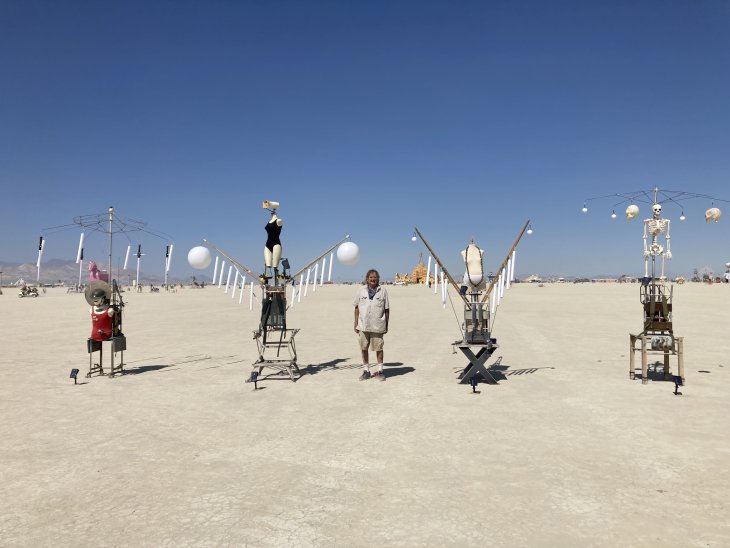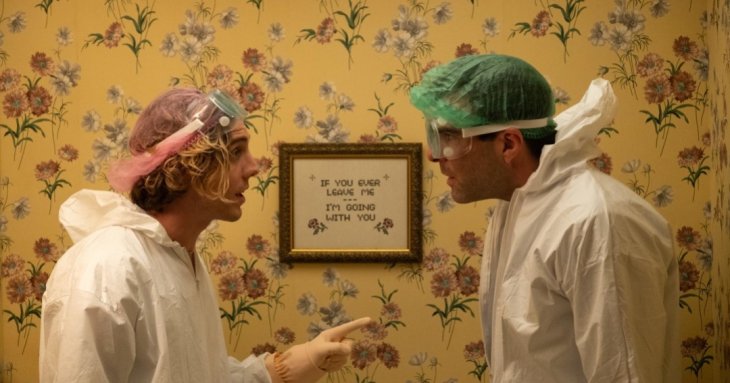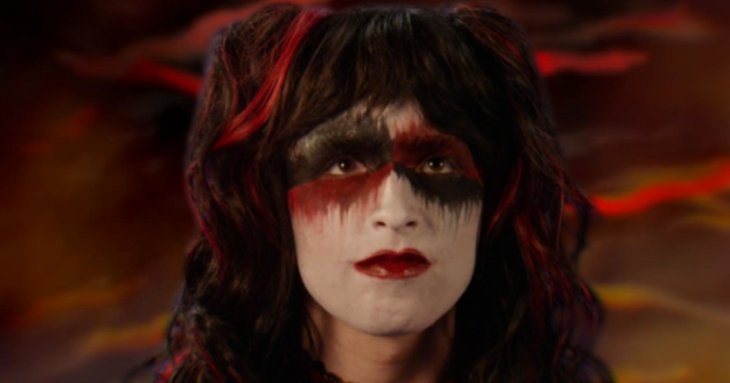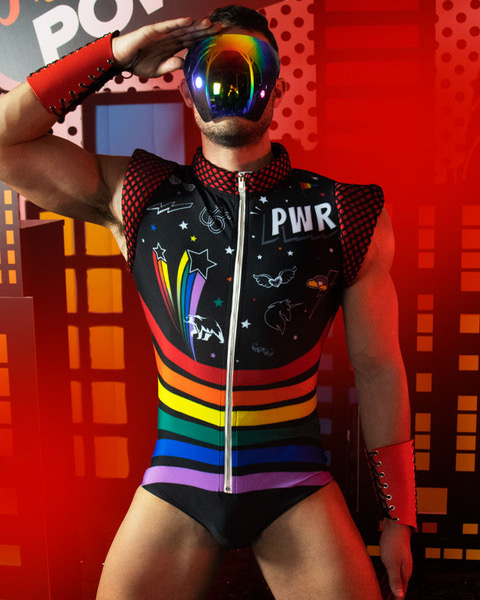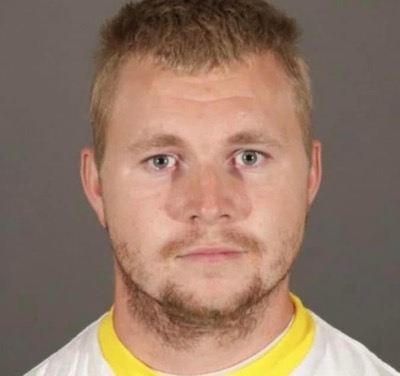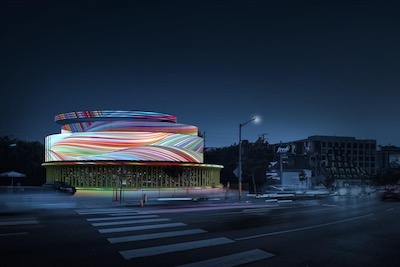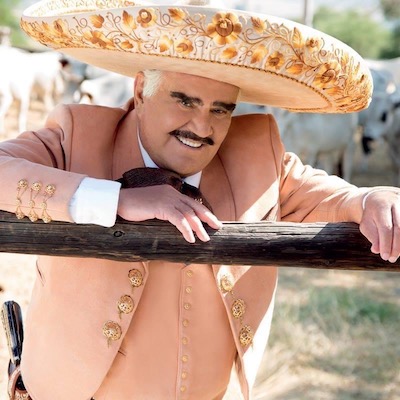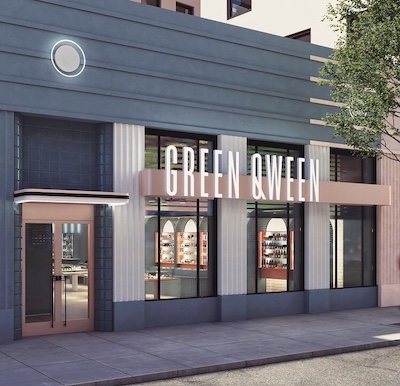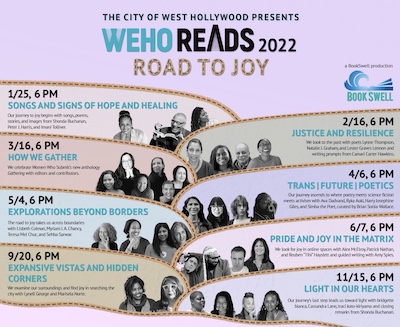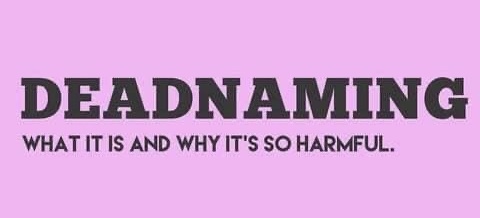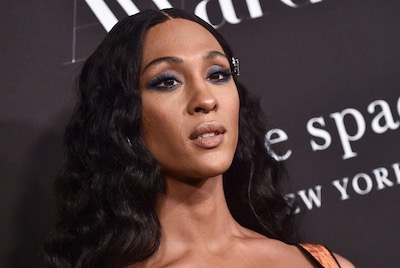Gayest Episode Ever is an LGBTQ+ podcast hosted by journalist Drew Mackie and screenwriter Glen Lakin.
The podcast looks at LGBTQ+ themed episodes from shows past, back when LGBTQ+ characters and story-lines were rare and (often) done terribly.
Hosts Mackie and Lakin hold producers and creators accountable for homophobic/transphobic representations in past series while also recognizing and celebrating positive portrayals of LGBTQ+ characters and themes. They also look at modern-day depictions of LGBTQ+ people and stay up-to-date on series by reading LGBTQ+ media outlets every day.
For their end-of-season episode Glen and Drew will be returning to The Simpsons — specifically focusing on an episode that starts out as pro-gay marriage and then gets super transphobic. The end-of-season episode will also feature the hosts of the podcast Totally Trans.
Gayest Episode Ever provides insightful commentary on the evolution of queer representation, gay rights and how culture can both affect, and be affected by, what we see on TV. Many of the shows highlighted on the podcast include The Golden Girls, I Love Lucy, Perfect Strangers, The Nanny, Night Court, Scooby-Doo, American Dad, The Simpsons, and The New Adventures of Old Christine, among so many others.
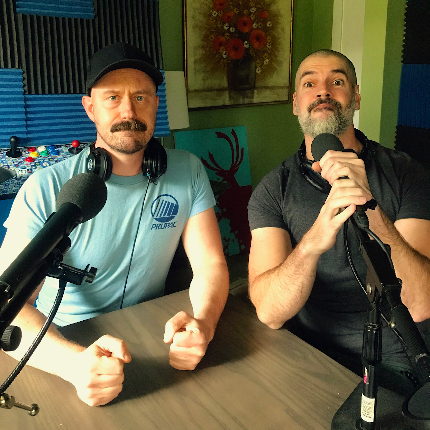
Drew and Glen sat down with the Pride LA and gave an insightful interview to the inspiration behind Gayest Episode Ever.
What inspired you to start a podcast covering this subject?
GLEN: First and foremost, the inspiration for the podcast was Drew asking to do this podcast and agreeing that I would never need to listen to it. (I can’t stand the sound of my voice.) The season one episode of CHEERS, “The Boys in the Bar,” probably gave me the clearest idea of what the podcast would be. The episode aired in 1983 so I assumed the content would be cringe-worthy, but I remember being pleasantly surprised by the sensitive and complex approach to the writing and performances. I wondered what other “gay” episodes of TV I had dismissed for being “too old.”
DREW: We were having these conversations anyway, so I figured there were people out there who love TV as much as we do and who’d be interested to take a closer look at some of these episodes. I feel like people today think “prestige TV” is worth a lot of critical attention, and it is, but all the less prestigious stuff we watched back in the day also reflected the attitudes of the time, good and bad. So people were just casually watching these old sitcoms, often not thinking much about how they might be influencing how they felt about LGBT issues, and I thought it would be worth it to talk about how it might have pushed people’s opinions one way or the other.
How have listeners’ reactions been? Positive? Negative? Mixed?
GLEN: Drew bears the brunt of our feedback and social media engagement. I want to say positive, but he just might be shielding me. I’ve had listeners reach out with screenwriting questions about their own projects, which has been really nice.
DREW: People have mostly been receptive — and even more so since we started covering episodes that fall outside our experiences as cisgender straight men but also bringing in guests who do identify as lesbian or trans or bi or anything else and can give a first-hand acocunt about how they feel about what was in these old episodes. If we get one complaint, it’s from an older listener — usually an older gay guy — telling us that we suck because we are approaching TV shows from past decades using the social standards of today. We try really hard to balance how something would have gone over back when it aired vs. how it stands up today, but some people just don’t want to hear that The Golden Girls was anything less than perfect. We love the Golden Girls, but not every joke has aged well, and some weren’t so hot to begin with.
How do you think this podcast helps the LGBTQ+ community?
GLEN: Representation matters, so it’s important to understand the history of our representation in media, good or bad. We can’t judge our progress, present and future, without knowing the past.
DREW: That’s for the listeners to decide. We think we’re doing something worthwhile if we can make someone think differently about something they watched twenty years ago, whether we’re making that thing seem better than they remember or we’re showing how it maybe was smuggling some toxic ideas into their living room without them realizing it. But if someone looks at the show and says “I can’t believe these guys spent an hour and a half talking about Doogie Howser,” well, that’s fine too.
Do you think current tv shows have improved when it comes to how tv shows deal with LGBTQ issues?
GLEN: Mostly, yes, simply because there are more LGBTQ characters and story-lines on TV across all formats and genres – even animation. There’s still cringe-worthy content, and I think some big name creators and shows give us an inaccurate sense of progress. There’s still lots of work to do, on camera and behind the scenes, especially when it comes to Bi and Trans representation.
DREW: A major plus of having multiple LGBTQ characters on any one show is that it’s no longer the case that a single character has to shoulder the weight of LGBT representation. Now we can have LGBTQ characters who are more interesting and more flawed — and also less often white cisgender men, because a lot of LGBT representation way back then was pretty much only that. The LGBTQ community onscreen is looking more like the one that exists in the world, and that’s something we should continue to demand of these shows.
Listeners can catch the Gayest Episodes Ever’s end-of-the-season episode airing tomorrow (June 30th) and catch up on past episodes here: https://www.gayestepisodeever.com/

